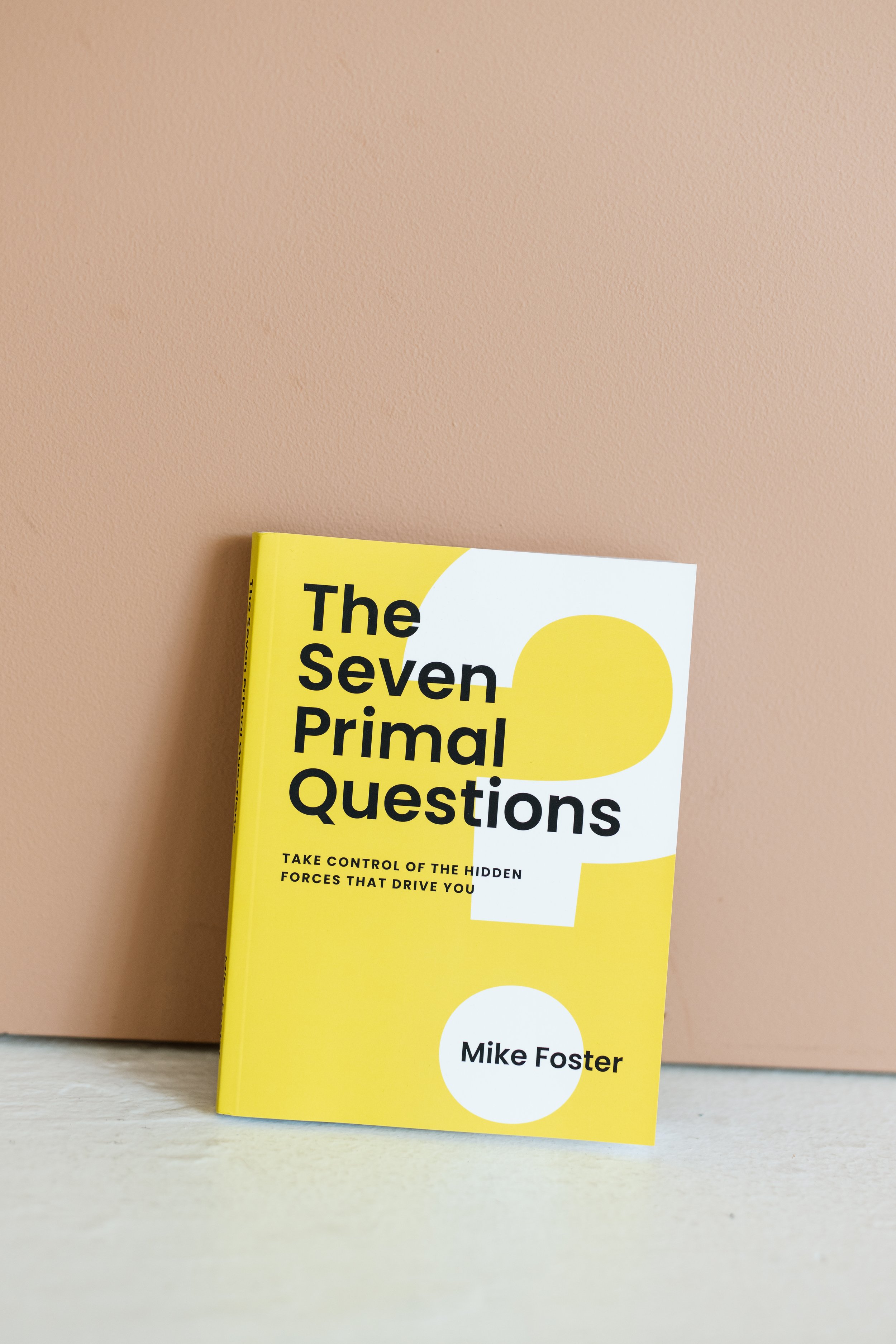—Your Results—
Primal Question #1
"Am I Safe?"
Your results suggest that your Primal Question may be “Am I safe?” Below are additional details about your results.
CORE NEED:
Physical and emotional safety.
CORE FEAR:
Feeling trapped or in potential danger.
KRYPTONITE:
Unpredictability or negative surprises.
Want to go deeper?
Your Personalized Coaching Tips
FROM AUTHOR/FOUNDER MIKE FOSTER
As a PQ1: Am I Safe? you crave certainty, stability, and protection because the world often feels unpredictable and threatening. But when you live from a place of grounded safety, you become a calm, steady force that others can count on…especially in chaos.
1. Name what feels unsafe.
Call it out clearly…don’t minimize it.
Why? Fear loses power when it’s named. Vagueness fuels anxiety.
2. Set predictable daily rhythms.
Anchor your day with routines. Meals, bedtime, finances.
Why? Structure creates a sense of control when the world feels shaky.
3. Learn to calm your nervous system.
Use breathwork, grounding techniques, or movement daily.
Why? A regulated body tells your brain: “I’m okay right now.”
“This book is brilliant! I could not put it down!”
—Jenni LaCasse From Amazon
available at:
Backed by Psychology.
Proven in Real Life.
5 years of research. Over 100,000 assessments. 6000 hours of interviews. 22 group labs. 1000’s of changed lives. This isn’t a nice little idea…its
transformation transformed!
↓
Why it works!
THE PRIMAL QUESTION has helped thousands of individuals, couples, and teams gain life-changing clarity.
Deep Psychological Insights
Identifies the core question driving your life and all relationships.
Real World Application
Used by leaders, companies, coaches and therapists to create transformation.
Proven Impact
Helps people break free from self-doubt, fear, and unhealthy patterns.
Simple and Repeatable
The models simple elegance creates a fast-track to change and sustainable growth.
THE SEVEN PRIMAL QUESTIONS, EXPLAINED
An introduction to each Primal Question:
↓
-
The Q1s are the world’s guardians — they help people feel safe and protected, are naturally able to analyze and predict, and tend to be emotionally connected and sensitive.
At their core, they crave physical and emotional safety — and negative surprises are a “no, thanks.”
When Q1s are at their best, they’re relaxed, at peace, and can heal and protect those around them. However, when they’re in their scramble, they tend to try to control the future, live on high alert, and exist in a lot of stress and anxiety.
-
The Q2s are great providers and partners — and they build stable environments, prioritize their relationships and finances, and tend to be trustworthy, grounded, and methodical.
At their core, they crave security — and not having the right amount of money or relational resources to protect themselves is a big fear.
When Q2s are at their best, they’re generous, connected, and secure. However, when they’re in their scramble, they tend to fret over money, resources, and relational capital.
-
The Q3s are gifted at loving and caring for others — and they create safe, loving environments for others to feel seen, heard, and treasured.
At their core, they crave being loved — and the thought of being dismissed, unheard, or unseen is a deep fear.
When Q3s are at their best, they’re nurturing, kind, and empathetic. However, when they’re in their scramble, they tend to become people-pleasers, over-give, and engage in codependent behaviors.
-
The Q4s are welcoming, accepting, and inclusive — and they’re excellent at connecting people and including them.
At their core, they crave being wanted — and the thought of being excluded, replaced, or shunned is a deep fear.
When Q4s are at their best, they’re strong in social settings, good with people, and make others feel special. However, when they’re in their scramble, they tend to lose themselves in the need to feel wanted themselves.
-
The Q5s are confident, focused, and help everyone solve problems — and win.
At their core, they want to be and be seen as successful — and being seen as incompetent or underachieving is their worst possible outcome.
When Q5s are at their best, they lead themselves and others to positive outcomes — and their can-do attitudes give them the ability to produce great work. However, when they’re in their scramble, they tend to lose sight of the bigger picture, engage in workaholic behaviors, and work towards outcomes they may not really want.
-
The Q6s are valuable, advocating, and full of special abilities — plus, they’re great at seeing possibilities and spotting untapped resources.
At their core, they want to be seen as good — and ever being negatively thought of or criticized is a huge deal to them.
When Q6s are at their best, they add value to others, embrace their own imperfections, and maximize the lives around them. However, when they’re in their scramble, they tend to see themselves as a victim or shut down.
-
The Q7s are imaginative, forward-thinking, and impactful — and they consistently make the world around them a better place.
At their core, they want to live a life full of meaning — and living a purposeless life is the worst thing that could happen to them.
When Q7s are at their best, they embrace their boundless visions, rally people towards a difference, and help others unlock their purpose. However, when they’re in their scramble, they tend to get caught up in finding the “right” path, which can cause them to miss the good.











